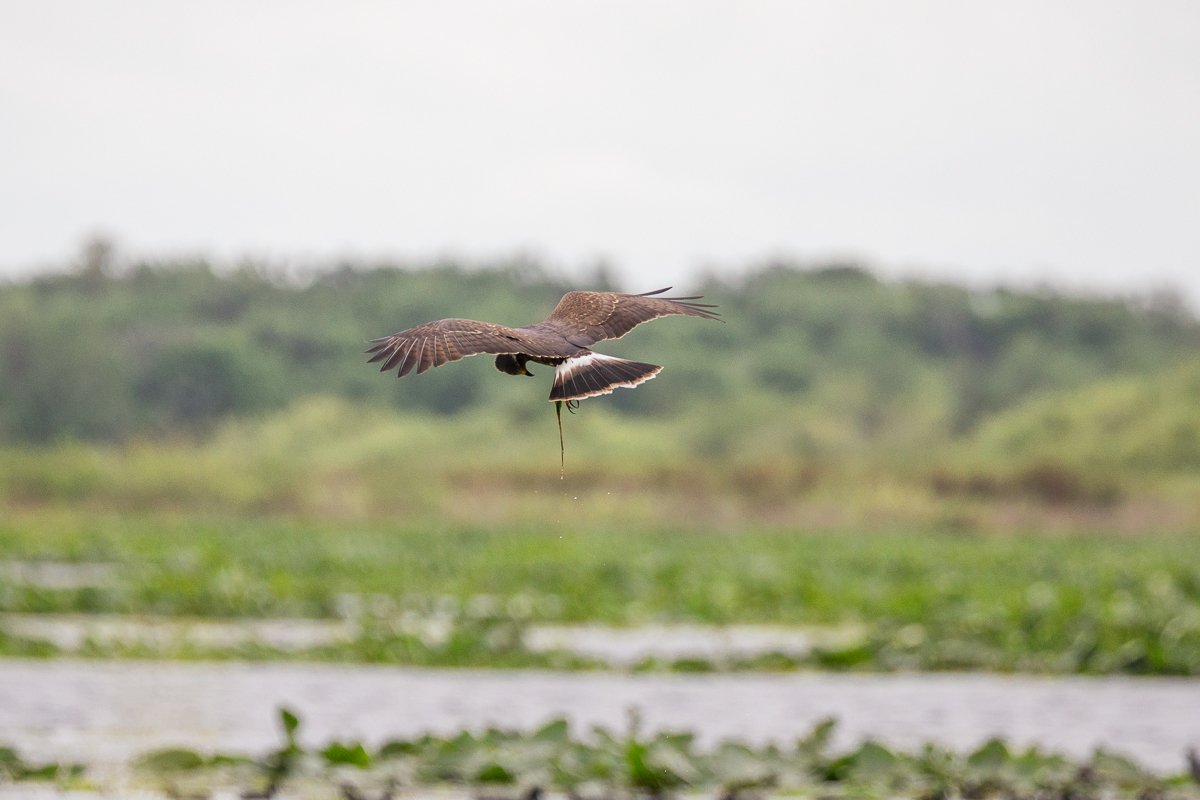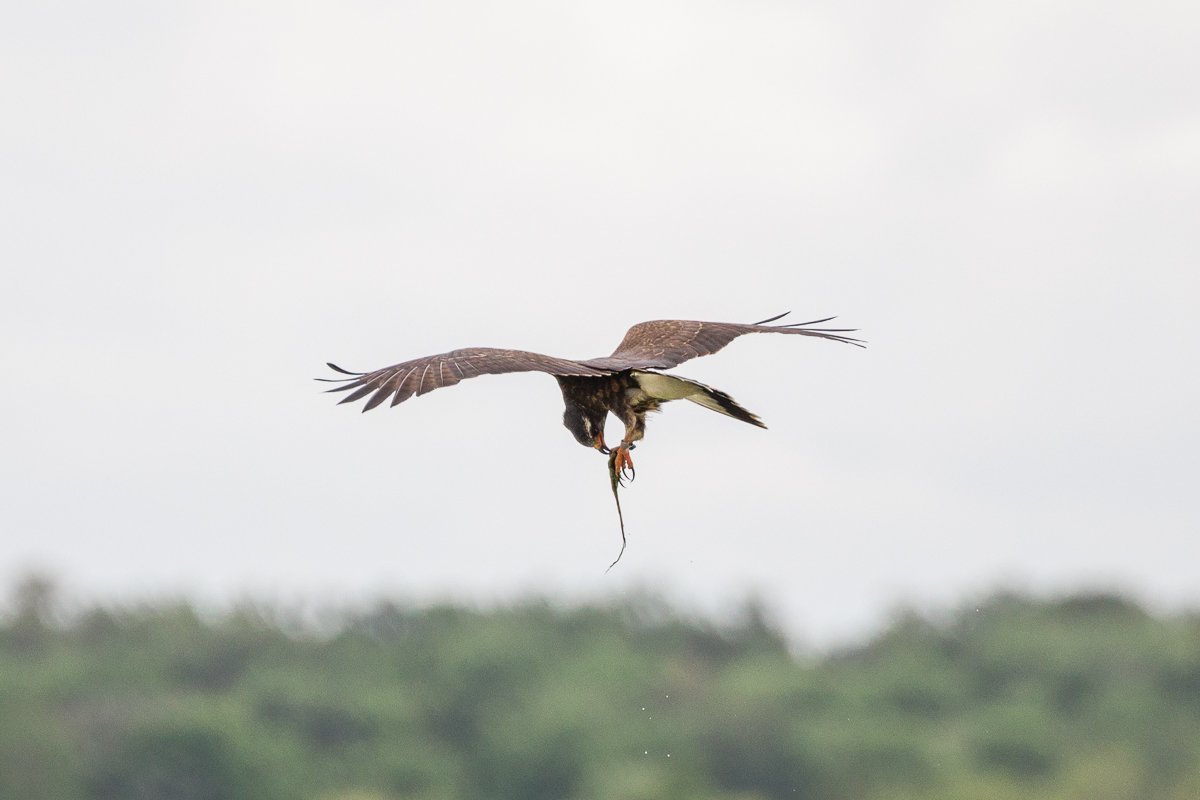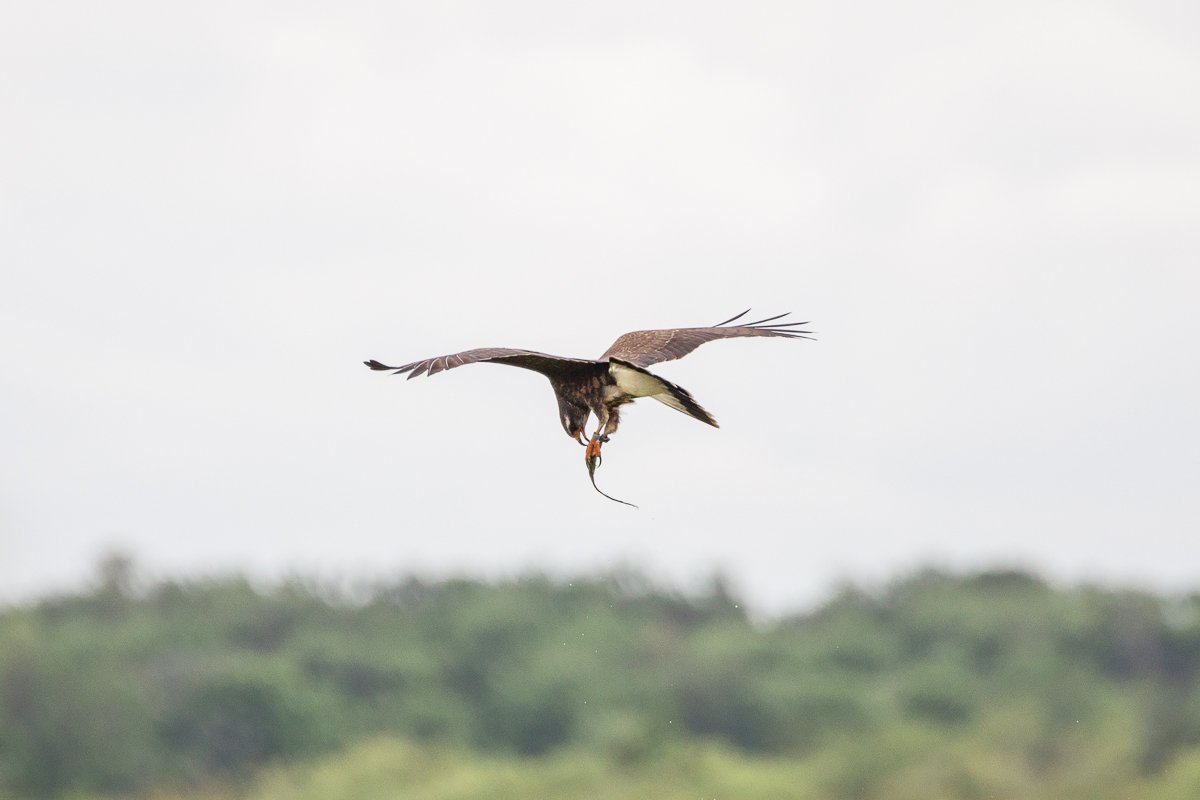Beauty, Birds, and an Ethical Dilemma
Breeding Male Ring-necked Duck
Emeralda Marsh Conservation Area, an actively managed site dedicated to restoring the water resources of Lake Griffin and the Ocklawaha River, offered yet another memorable birding experience. The visit began with a sighting of a pair of Ring-necked Ducks followed by several fleeting glimpses of Savannah Sparrows.
Female Ring-necked Duck
Savannah Sparrows
Juvenile Little Blue Heron
One particularly confusing encounter was with a juvenile Little Blue Heron. At first glance, its pale plumage had me second-guessing, briefly mistaking it for a juvenile Snowy Egret. Moments like this, where field identification challenges you, are part of what makes birding so fun.
The highlight of the marsh visit came in the form of a Snail Kite in action, expertly catching a snail.



As we were heading back from Emeralda Marsh Conservation Area, I noticed several photographers on the side of the road, their cameras aimed at something. We stopped, and there it was - a beautiful Barred Owl. I stood in awe, capturing a few photos as the owl seemed equally captivated, calmly observing its admirers. But what happened next unsettled me. As I was returning to my car, a strange sound caught my ear. It was an owl call, but one that seemed oddly disembodied. The sound wasn’t coming from the trees or the ground. Even the Barred Owl tilted its head, clearly perplexed. It didn’t take long to uncover the source: a photographer nearby was playing a recorded owl call on a device, a technique known as playback. Using this to lure the owl closer or keep it engaged for a "better shot."
Though I had heard about playback before, I had never encountered it firsthand. Seeing it in practice made my heart sink. As a wildlife photographer, my passion is fueled by a deep love for nature and a desire to document its beauty as naturally as possible. Playback feels like a betrayal of that respect. It disrupts the natural behaviors of wildlife, pulling them away from vital activities like feeding, resting, or even attending to young. Birds already face countless pressures, both natural and human-induced and adding unnecessary stress feels irresponsible, even harmful.
The encounter left me uneasy, but also reflective. To truly honor the beauty we seek to capture, we must also honor the subject itself: nature. It is a gift to observe wildlife, not an entitlement to manipulate it. Let us strive to tread lightly, to observe quietly, and to capture moments that reflect not only the wild we see, but the reverence it deserves.







